WASHINGTON — Washington began bracing for a prolonged government shutdown on Tuesday, with House Republicans continuing to demand that the nation’s new health-care law be delayed or repealed and President Barack Obama and the Democrats refusing to give in.
There were signs on Capitol Hill that Republicans – knowing that blame almost certainly will fall most heavily on them – are beginning to look for ways to lift some of the pressure.
House GOP leaders pushed a new approach to end the impasse, offering to fund some parts of the government – including national parks, veterans benefits and the District of Columbia government. The goal was to put Democrats on the spot by trying to make them vote against programs that are popular among their constituents.
Senate Democratic leaders and the White House quickly rejected the piecemeal strategy. And in a series of evening votes, Democrats helped defeat the measures on the House floor.
Obama made his second appearance in as many days to call on Republicans to fund the government. He was flanked in the White House Rose Garden by about a dozen uninsured people who will be eligible for benefits under the Affordable Care Act, which took effect Tuesday. The legislation, often refered to as Obamacare, remains unpopular, but polls suggest that the idea of closing the government to stop it is even more so.
“This shutdown is not about deficits. It’s not about budgets,” Obama said. “This shutdown is about rolling back our efforts to provide health insurance to folks who don’t have it. This, more than anything else, seems to be what the Republican Party stands for these days. I know it’s strange that one party would make keeping people uninsured the centerpiece of their agenda, but that apparently is what it is.”
At the moment, neither side is feeling a clear imperative to end the shutdown.
Republican leaders prefer keeping the government closed to compromising on health care. And, with polls showing that voters overwhelmingly blame Republicans for the stalemate, Democrats, too, are willing to let it drag on.
Aside from a 10-minute phone call Monday evening, Obama and House Speaker John Boehner, R-Ohio, are not talking. Nor is Boehner meeting with Senate Majority Leader Harry Reid, D-Nev.
Unlike most GOP House members, Sen. Tom Coburn of Oklahoma lived through the prolonged shutdowns of 1995 and early 1996.
Although the ardently conservative Coburn sympathizes with the more junior lawmakers’ strong opposition to the health-care law, he says their shutdown strategy will end badly for Republicans.
“What they’re going to do, they’re going to dig in harder until the pain becomes so bad they yell uncle,” he said. “And it isn’t going to be pain from the president, it’s going to be pain from their own constituents.”
At least 12 House Republicans say they would vote in favor of a “clean” spending bill – one that simply keeps the government open for two more months, without any language about defunding or delaying the health-care law. It is hard to say whether that is the beginning of a trend, and it is also well short of the number that would be needed to persuade the speaker to bring such a bill to the floor.
If the shutdown lasts several weeks – and that looks possible – it will take lawmakers right into a bigger crisis: the expiration of federal borrowing authority. Republicans are hoping to use that deadline to gain concessions from Obama, who has said repeatedly that he will not negotiate over the nation’s solvency.
Treasury Secretary Jack Lew has said he will begin running short of cash to pay the nation’s bills unless Congress acts by Oct. 17. That would raise the virtually unthinkable prospect of a default on U.S. debt.
On Tuesday, Craig Alexander, chief economist at TD Bank Group, warned of complacency in financial markets among investors who “have seen this story before and we think we know how it ends.”
“An accident could happen,” Alexander wrote. “If it does, and America has to start prioritizing its bills, I suspect the financial market reaction will be … severe.”
Lawmakers in both parties predicted that if the shutdown stretches into the weekend, efforts to end it will become part of a larger negotiation over raising the federal debt limit.
The first partial closure of the government in nearly 18 years began at midnight Monday, when the fiscal year ended, forcing 800,000 federal employees out of work indefinitely and closing federal offices and services not deemed vital.
Those workers declared essential showed up, but most will work without pay until the stalemate is settled.
A reopening of some federal agencies had been proposed by Sen. Ted Cruz of Texas, a tea party champion who has become the de facto leader of the Republicans who are most committed to the shutdown strategy.
“We ought to fund the Border Patrol agents today. We ought to do it in a bipartisan manner,” he said. “Yesterday, we saw the process work when the Senate unanimously passed the bill the House had passed already to provide that the men and women of the military will be funded. I think that is absolutely the way to go.”
Senate Democratic leaders dismissed the proposal.
“Senator Ted Cruz is now going to pick his favorite federal agencies to reopen? Come on. Let’s get serious about this,” said Sen. Richard Durbin of Illinois, the majority whip. “We’ve got an important responsibility with government at many different levels.”
The plan also did not receive any support from the White House.
“These piecemeal efforts are not serious, and they are no way to run a government,” presidential spokeswoman Amy Brundage said. “If House Republicans are legitimately concerned about the impacts of a shutdown – which extend across government from our small businesses to women, children and seniors – they should do their job and pass a clean spending bill to reopen the government.”
The day’s most iconic moment was a poignant act of civil disobedience.
It was the storming of the National Mall’s World War II memorial by a group of elderly veterans, some in wheelchairs or using canes. They had arrived from Mississippi on Tuesday as part of an honor flight program to pay tribute to one another and to fallen comrades, only to discover barricades at the closed war monuments.
The veterans were accompanied by several lawmakers. They proceeded and the barriers parted – although no one could say for sure how that happened.
Send questions/comments to the editors.

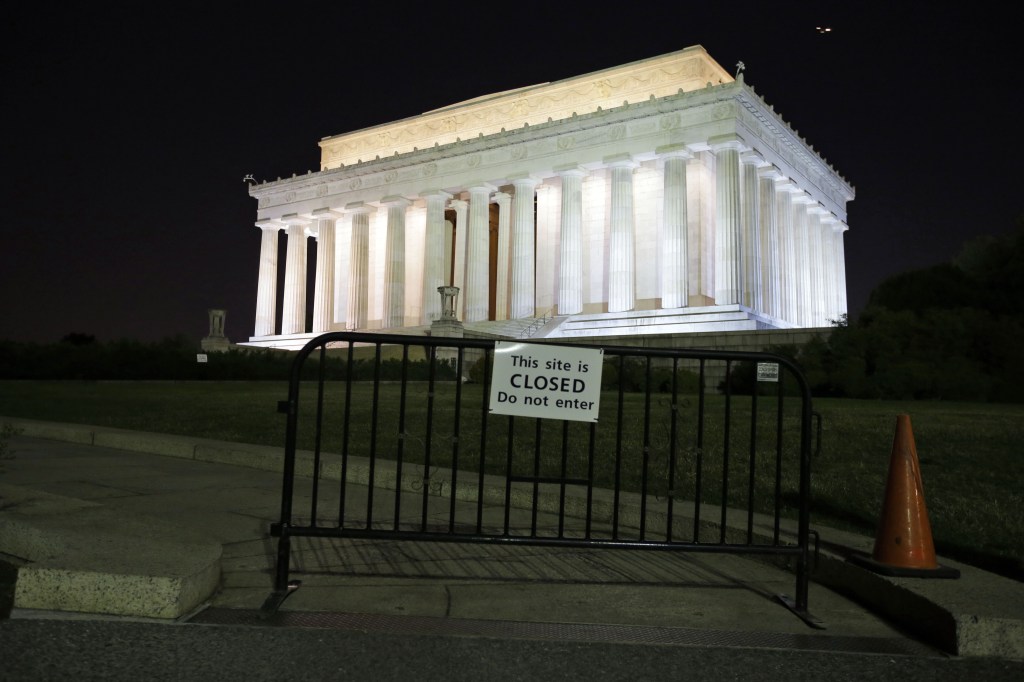
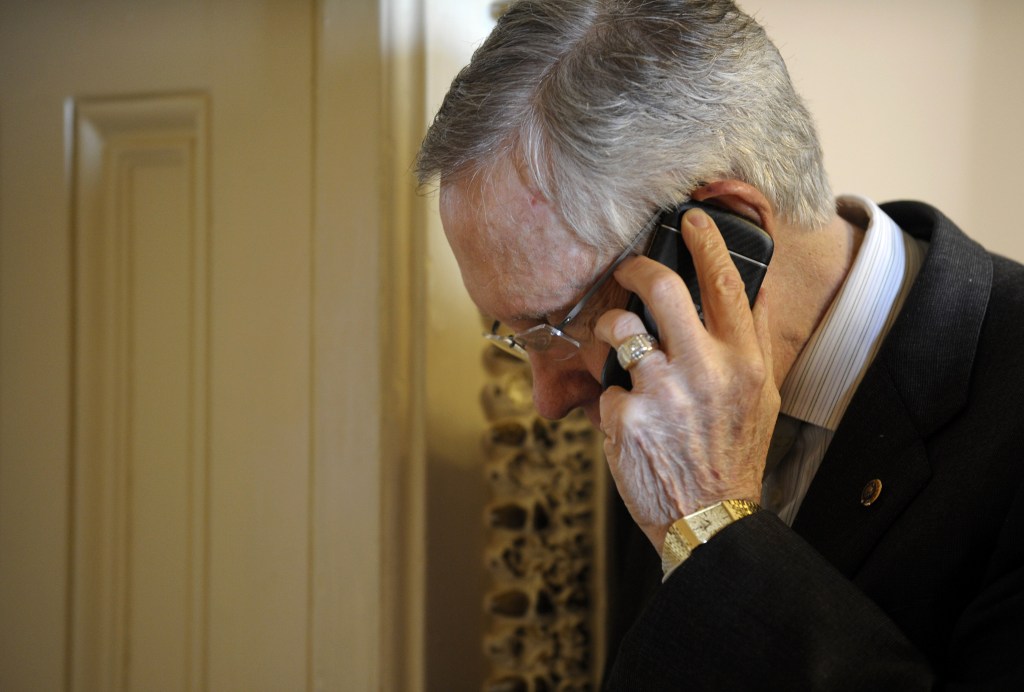
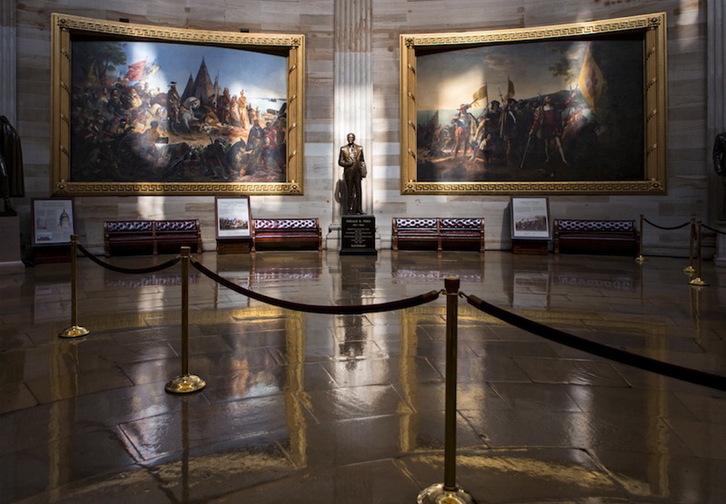
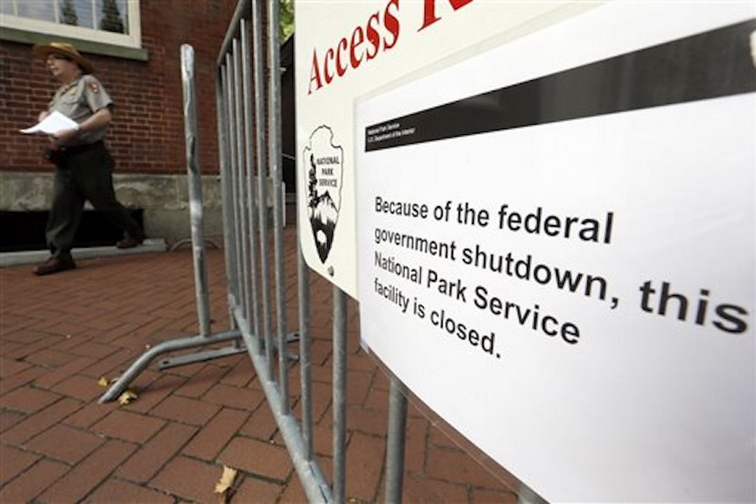
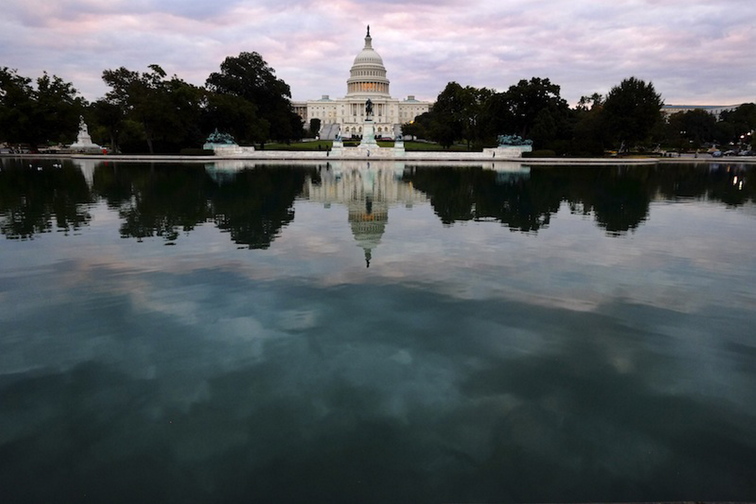
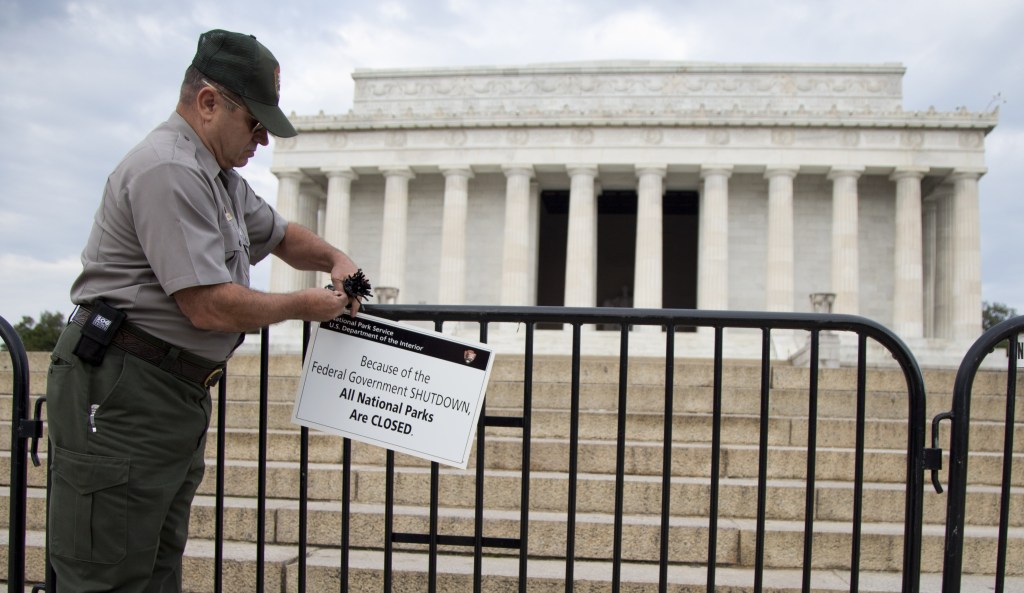
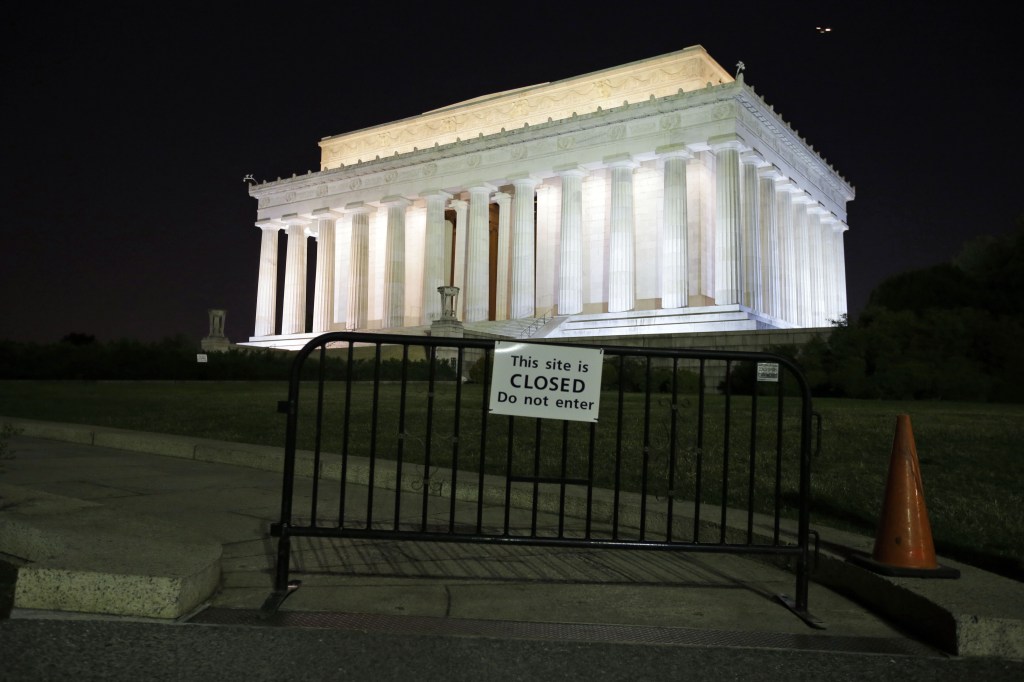
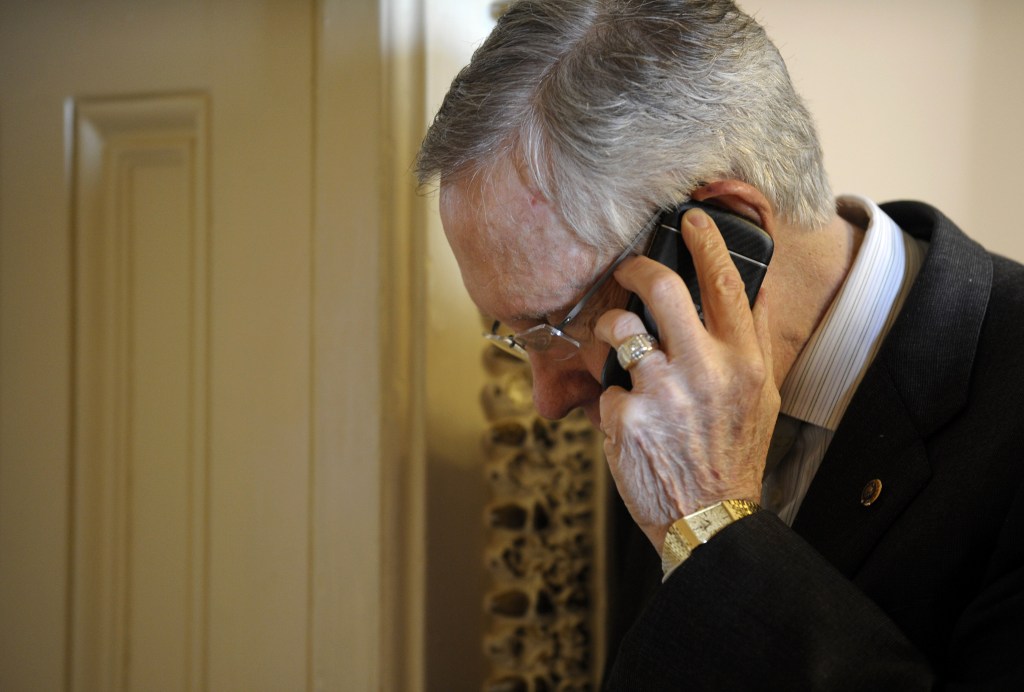
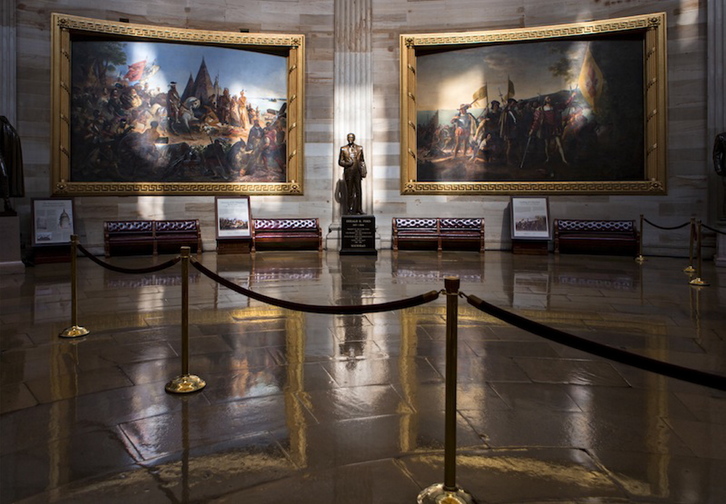
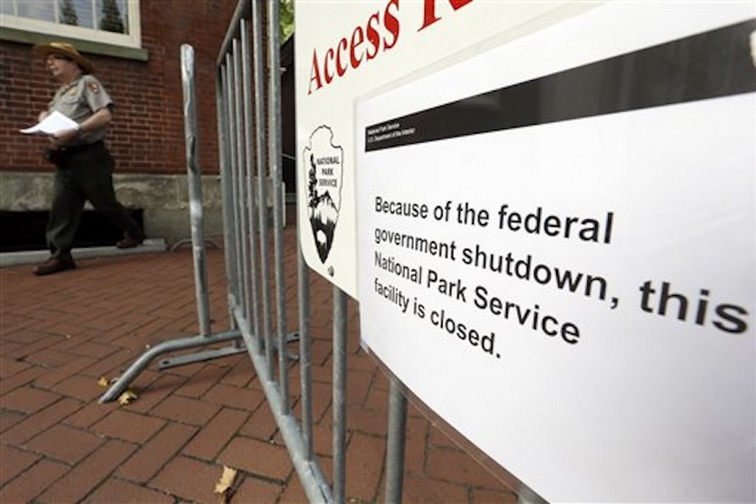
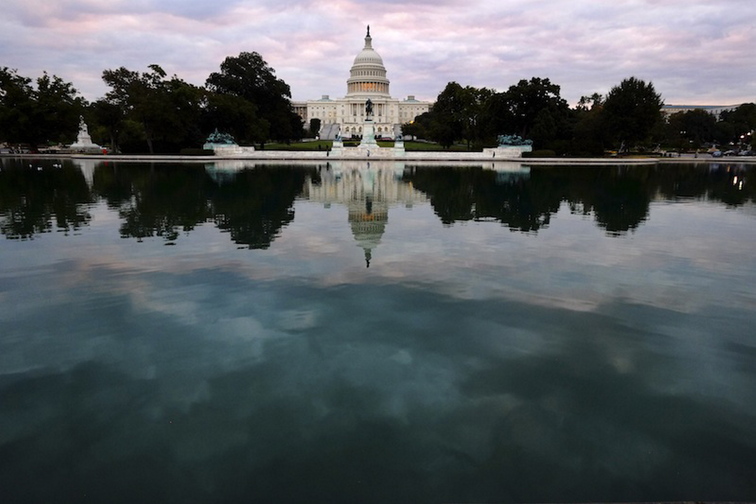
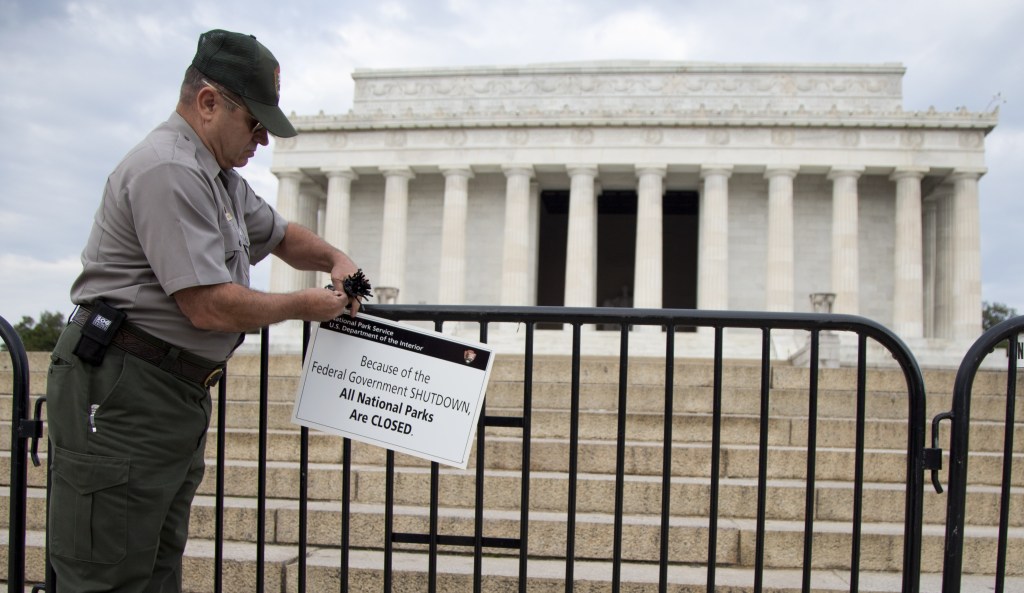

Comments are no longer available on this story